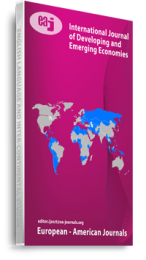An unsustainable power supply has dire consequences for every economy. Extant studies focused on the nexus of electricity consumption and economic growth to the neglect of electricity transmission losses (ETL). This paper argued that quantifying the effect of ETL on electricity consumption and understanding its implications on growth will incite actions to improve the electricity transmission system in Ghana. Using yearly data from 2000 to 2020 in an Autoregressive Distributed Lag (ARDL) model, the study concludes that ETL reduce the total amount of electric power consumed in Ghana by 34%. Again, a reduction in electricity consumption due to ETL reduces national income and Ghana’s growth at large. Factors including electricity price, exchange rate, and inflation also influenced electricity consumption and economic growth in Ghana. The study suggests massive improvement in its electricity transmission system to reduce electricity losses, increase electricity consumption, and enhance economic growth.
Keywords: Electricity transmission losses, Ghana, Growth, electricity consumption

